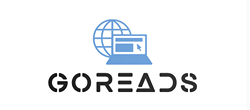In (Search Engine Optimization) SEO in Melbourne, a keyword refers to a specific word or phrase that reflects a web page’s main topic or theme. Keywords are crucial in optimising a website’s content for search engines and improving its visibility in search results.
Users search for information or products online and enter relevant keywords into search engines. By incorporating these keywords strategically within their web design in Melbourne, businesses aim to rank higher in search engine results pages (SERPs) and attract organic traffic.
Effective keyword research is essential to identify a website’s most relevant and valuable keywords. Search volume, competition, and user intent are considered when selecting keywords.
Keywords are used in various on-page elements, including page titles, headings, meta descriptions, and throughout the website’s content. By optimising content with relevant keywords, businesses increase the likelihood of search engines recognising the website as a valuable resource for specific search queries.
Keywords in SEO are the targeted words and phrases used to optimise website content for search engines, ultimately aiming to improve visibility, attract organic traffic, and provide relevant information to users. Web design in Melbourne helps businesses establish a strong online presence in the local market, attracting potential customers searching for web design services in Melbourne.
Types of Keywords in SEO
In SEO in Melbourne, various keywords are important to understand for effective optimization. Each type serves a different purpose and can be utilised differently to enhance a website’s visibility and attract relevant traffic. Following are some common types of keywords in SEO –
- Short-Tail Keywords: Short-tail or head keywords are short and generic terms with a broad meaning. They typically contain one to three words, such as “shoes” or “digital marketing.” These keywords have high search volume but are also highly competitive. While they can generate significant traffic, they may not always result in targeted or qualified leads.
- Long-Tail Keywords: Long-tail keywords are longer, more specific phrases, usually consisting of three or more words. They are more precise and reflective of user intent. For example, “Women’s running shoes for flat feet” or “digital marketing agency in New York.” Long-tail keywords have lower search volume but tend to be less competitive. They are valuable for targeting specific niches, attracting highly relevant traffic, and capturing users at different buying cycle stages.
- Branded Keywords: Branded keywords include the name of a specific brand or company. For example “Nike running shoes” or “OpenAI language model.” Branded keywords are important for businesses to optimise as they target users already aware of and searching for their brand. They can help increase brand visibility, protect brand reputation, and drive traffic to the brand’s website.
- Product/Service Keywords: These keywords are specific to the products or services offered by a business. For instance, “best budget smartphones” or “SEO services for small businesses.” Optimising product or service keywords help attract users actively searching for those offerings and can lead to higher conversion rates.
- Geo-targeted Keywords: Geo-targeted keywords include specific geographic locations, such as cities, states, or countries. For example, “pizza delivery in Los Angeles” or “dentist in London.” These keywords are essential for local businesses to attract customers in specific locations. They help improve local search rankings and drive relevant traffic from users searching a particular area.
- Industry-Specific Keywords: Industry-specific keywords are specific to a particular niche or industry. They often include technical terms or jargon related to a specific field. For example, “blockchain technology trends” or “cloud computing solutions.” Optimising for industry-specific keywords helps businesses establish authority, attract a targeted audience, and position themselves as experts within their respective industries.
When conducting the keyword research, it’s crucial to consider combining these types of keywords to create a well-rounded strategy.
Main Elements of Keyword Research
Keyword research in web design in Melbourne involves several key elements essential for identifying relevant and effective keywords for SEO. The main elements of keyword research include the following –
- Business Goals: Start by understanding the business goals and objectives. Determine the purpose of the keyword research, such as increasing organic traffic, driving conversions, or expanding into new markets. Aligning keyword research with business goals ensures that the selected keywords contribute to overall business success.
- Target Audience Analysis: Analyse the target audience to gain insights into their demographics, interests, preferences, and search behaviour. Understanding the target audience helps identify the language, terminology, and specific keywords they are likely to use when searching for products or services.
- Seed Keywords: Begin with a list of seed keywords related to the business or industry. These are general terms that define the main topics or themes. Seed keywords are a starting point for further research and can be expanded into more specific long-tail keywords.
- Keyword Expansion: Use keyword research tools to expand the seed keywords into a comprehensive list of related keywords. These tools provide suggestions based on search volume, competition, and related terms. Look for variations, synonyms, related phrases, and long-tail keywords relevant to the business and target audience.
- Search Volume Analysis: Evaluate the search volume of keywords to understand their popularity and demand. Google Keyword Planner or other third-party keyword research tools can provide search volume data. Focus on keywords with a balance between sufficient search volume and manageable competition.
- Keyword Relevance: Assess the relevance of keywords to the business, products, or services being offered. Ensure that the keywords accurately represent what the business provides and align with the target audience’s intent. Choose keywords that closely match the business’s offerings to attract qualified traffic.
- Competition Analysis: Analyse the competition for keywords by assessing the top-ranking websites. Evaluate their domain authority, page authority, content quality, and backlink profiles. Understanding the competition helps identify opportunities and determine the effort required to rank for specific keywords. Incorporating “web design in Melbourne” as a targeted keyword allows businesses to differentiate themselves in Melbourne’s competitive web design industry and reach their desired local clientele.
- User Intent: Consider the user intent behind the keywords. Determine whether users are seeking information, looking to make a purchase, or seeking specific services. Keywords with transactional intent are more likely to drive conversions, while those with informational intent can attract visitors seeking relevant content.
- Long-Tail Keywords: Explore long-tail keywords that are more specific and less competitive. These often have a lower search volume but higher conversion potential. They allow for targeting specific niches and capturing users with clearer purchase intent.
- Keyword Organisation: Organise the keywords into relevant categories or groups based on common themes or topics. This helps structure website content, optimise specific pages, and create a coherent site architecture.
- Continuous Monitoring and Refinement: Keyword research is an ongoing process. Regularly monitor keyword performance, search trends, and industry or target audience behaviour changes. Refine the keyword list as needed and adapt strategies based on the evolving search landscape.
By considering these main elements of keyword research, businesses can identify relevant and effective keywords to optimise their website content, improve search engine rankings, and attract the right audience to drive organic traffic and conversions.
The Last Thought
As a web design company, conducting thorough keyword research is critical to Make My Website’s services. By understanding the business goals and target audience, we identify relevant keywords that align with the website’s purpose and attract the right visitors.
Starting with seed keywords and expanding the list using keyword research tools, we ensure comprehensive coverage of related terms and variations. Analysing search volume helps us gauge keyword popularity and demand, while competition analysis allows us to identify opportunities and devise effective strategies.
By incorporating the above-mentioned key elements of keyword research, our company ensures that our websites are optimised for search engines, attract targeted traffic, and provide an exceptional user experience. Our goal is to empower businesses with a strong online presence that drives visibility, engagement, and business growth.




